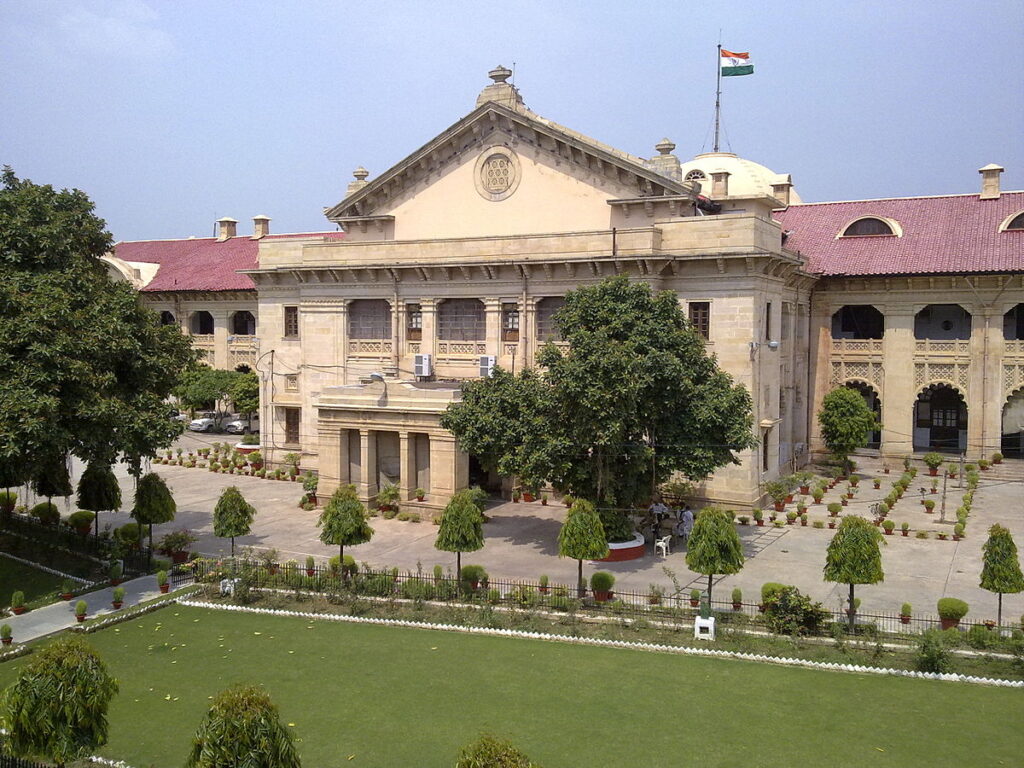The Allahabad High Court has ruled that a court declaration of civil death under Section 108 of the Evidence Act does not create a presumption about the date and time of death. As a result, a plea for compassionate appointment was dismissed.

The Allahabad High Court explained that a civil court’s declaration of civil death under Section 108 of the Indian Evidence Act, 1872 does not automatically establish a presumption about the date and time of death. This appeal was based on earlier decisions made by a Single Judge, which supported the Deputy Commissioner’s order in Gonda that denied the appellant’s request for a compassionate job. Justices Rajan Roy and Om Prakash Shukla stated, “A presumption of death under Section 108 can only occur after seven years, and it cannot be assumed even after six years and 364 days or any time before that.”
Advocate Om Prakash Mani Tripathi represented the appellant, while CSC Gopal Kumar Srivastava represented the respondent. The case presented to the Court indicated that the appellant’s father, who worked as a peon at Jila Udyog Kendra in Gonda, Uttar Pradesh, went missing in 2012. His family reported this on the same day, but a formal missing person report was filed two days later. During this time, he turned 60 in 2013, but the respondent-Zila Udyog Kendra did not provide any retirement benefits due to the unclear status of the missing employee. In 2019, the appellant’s mother’s request for financial assistance or a compassionate appointment was denied because the seven-year period since the disappearance had not yet passed.
After seven years, the appellant’s family filed a lawsuit to declare the worker’s civil death, which the Civil Judge approved. Following this declaration, the appellant received a job offer as a chowkidar. However, when he tried to start the job, he was denied for unrelated reasons. The appellant then went to the High Court, asking for a compassionate appointment under the Dying in Harness Rules, 1974, but this request was rejected by a Single Judge. A key question for the Bench was whether a person missing for seven years should be considered dead from the time they disappeared or at the end of the seven-year period.
The Bench explained that Section 107 of the Indian Evidence Act, 1872 deals with proving the death of someone known to be alive within the last thirty years, while Section 108 addresses proving that a person has not been heard from for seven years. Citing previous Supreme Court cases, the Bench stated that a civil court’s declaration of civil death under Section 108 does not determine the exact date and time of death. This declaration is based on a legal presumption that only applies after seven years have passed, not before.
The Bench reviewed the records and noted that the appellant had filed a suit to declare his father as civilly dead. However, the appellant did not specify any date of death, and no evidence was presented to prove a specific date or time. The Civil Court’s order was based solely on the presumption of death under Section 108, without a specific date that could support the appellant’s claim for compassionate appointment. The Bench also pointed out that the Civil Court stated the order would become void if the appellant’s father was found to be alive. The High Court referred to a similar case, Vivek Kumar Verma Vs. Uttar Pradesh Rajya Vidyut Utpadan Nigam Limited, where a compassionate appointment was denied because a specific date of death was not proven.
The Bench concluded that since the father would have reached retirement age on 30.11.2013, and civil death could not be presumed before 16.10.2019 when the suit was filed, the appellant’s claim for compassionate appointment was not valid according to the law. Therefore, the Bench found no issues with the previous orders and dismissed the special appeal.
Cause Title: Amardeep Kashyap v. State Of U.P. Thru. Addl. Chief Secy [Neutral Citation: 2024:AHC-LKO:71607-DB]
Appearance:
Appellant: Advocate Om Prakash Mani Tripathi
Respondent: CSC Gopal Kumar Srivastava








